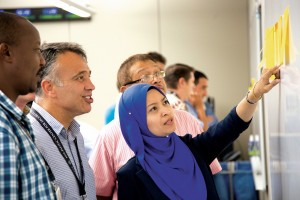
Noor Haryantie Noor Sidin, with the Malaysia National Security Council, spearheads a small group discussion Feb. 26 on issues associated with terrorism and other transnational threats. Sidin took part in the Asia-Pacific Center for Security Studies’ Comprehensive Responses to Terrorism course (15-1) Feb. 11 – March 13. She’s joined by fellow seminar six members (from left to right) Army Lt. Col. Stephen Mutuku James, Kenya Ministry of Defense; Air Force Col. Hakan Eser, Turkish Armed Forces; and Army Brig. Gen. Shekhar Singh Basnyat, Nepal Army.
Teams of international Fellows went head-to-head during four debates that marked the latest iteration of the Asia-Pacific Center for Security Studies’ course on terrorism held Feb. 11 – March 13.
The Comprehensive Security Responses to Terrorism (15-1) course brought 107 Fellows from 47 locations worldwide to this intense month-long course that ended today. CSRT provides security practitioners from the Asia-Pacific region and other select nations with the skills needed to better understand and combat terrorism and transnational threats.
Course learning typically occurs through faculty lectures, guest speaker presentations, real-world case studies, and tailored exercise scenarios. However, for the first time in its 20-year history, APCSS integrated a debate series to enhance the education experience.
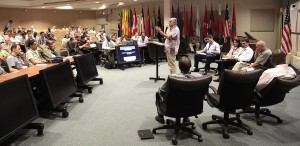
Shehryar Akbar Akbar Khan, Pakistan Ministry of Foreign Affairs, states his position on the topic “Poverty is the Root Cause of Terrorism” Feb. 18 during a debate at the Asia-Pacific Center for Security Studies. Shehyar took part in one of four debates during the Comprehensive Responses to Terrorism course (15-1) held Feb. 11 – March 13. This was the first APCSS course to integrate a debate series into the curriculum.
“The debate is a means of making and evaluating arguments that allows Fellows to better understand their own and others’ positions,” said APCSS’ Shyam Tekwani, CSRT course manager. “The debate format focuses on relevant and often deeply emotional and divisive propositions, emphasizing the development of critical thinking skills and tolerance for differing viewpoints.”
APCSS staff selected two multinational teams of three for each debate to face off on high-impact topics: “The Global War on Terror has Reduced Terrorism;” “No Publicity, No Terrorism;” “Poverty is the Root Cause of Terrorism?;” and “Terrorism is a War of Ideas.”
Col. Abdul Wahab Mozaphari, senior case officer with Afghanistan’s National Directorate of Security, described the debate format as “very helpful and challenging,” forcing him and other Fellows to carefully consider their own ideas as they defended or supported certain positions.
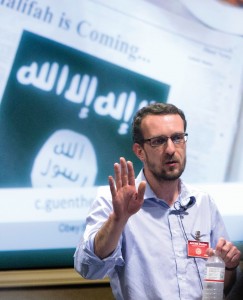
Dr. Christoph Günther, a University of Leipzig research associate and a Middle East specialist, lectures Feb. 17 at the Asia-Pacific Center for Security Studies on the nature and objectives of ISIS. Günther addressed 107 Fellows on the topic “Obey the Emerging Caliphate: Ideological Framework and Societal Model of ISIS” as part of the Comprehensive Responses to Terrorism course (15-1), held Feb. 11 – March 13.
These exchanges supplemented lectures and electives covering issues often seen in today’s headlines. Among the course’s 18 lectures was Dr. Christoph Geunther’s “Obey the Emerging Caliphate: Ideological Framework and Societal Model of ISIS.” In this session, Guenther, a University of Leipzig research associate and a Middle East specialist, addressed the ideological framework of the Islamic State and the societal model it proposes for Iraq, Syria and beyond.
Thirty-one elective offerings included “2015 and Beyond – Afghanistan’s Role in Central Asia After 13 Years of War.” U.S. Army Lt. Col. Nathan Springer, APCSS faculty member, led discussion on key 2015 political and security-related events in Afghanistan and evolving security implications for Eurasia, Pakistan, India and Iran.
Fellows applied knowledge gained in team projects enabling them to assess a particular threat, and formulate response strategies. While doing so, they built partnerships that may enhance their ability to apply effective action against real-world local, regional and global threats.
“The course is designed to build relationships between and among the United States and current and future CbT (combating terrorism) practitioners,” said Tekwani, adding, “Our objective is build the trust and skills needed to elevate cooperation in the international collaborative effort against those who use terror.”
CSRT 15-1 participants were from Afghanistan, Albania, Algeria, Bahamas, Bangladesh, Bosnia and Herzogovina, Brazil, Bulgaria, Burundi, Cambodia, and China. Participants also hailed from Chile, Colombia, Djibouti, Fiji Islands, Honduras, India, Indonesia, Jordan, Kenya, Kosovo, Kyrgyzstan, Laos, Lebanon, Malaysia, Mongolia, Morocco, Nepal, and New Zealand. Others hailed from Nigeria, Pakistan, Panama, Papua New Guinea, Peru, Philippines, Rwanda, Sierra Leone, South Korea, Sri Lanka, Taiwan, Tanzania, Thailand, Tunisia, Turkey, Uganda, United States, and Vietnam.

Omobonlanle Falilat Sabiu, with Nigeria’s Ministry of Defense, participates in a group project associated with combating terrorism and other transnational threats. Sabiu was one of 107 Fellows who took part in the Asia-Pacific Center for Security Studies’ Comprehensive Responses to Terrorism course (15-1) Feb. 11 – March 13.
CSRT is one of six formal courses at APCSS. The center is a Department of Defense institute that addresses regional and global security issues. Military and civilian representatives, most from the United States and Asia-Pacific nations, participate in a comprehensive program of executive education, professional exchanges and outreach events, both in Hawaii and throughout the Asia-Pacific region.
The Center supports U.S. Pacific Command by developing and sustaining relationships among security practitioners and national security establishments throughout the region. APCSS’ mission is to build capacities and communities of interest by educating, connecting and empowering security practitioners to advance Asia-Pacific security. It is one of the Department of Defense’s five regional security studies centers.
Since opening in 1995, more than 9,300 alumni representing over 122 countries and territories have attended APCSS courses and workshops.
-END-


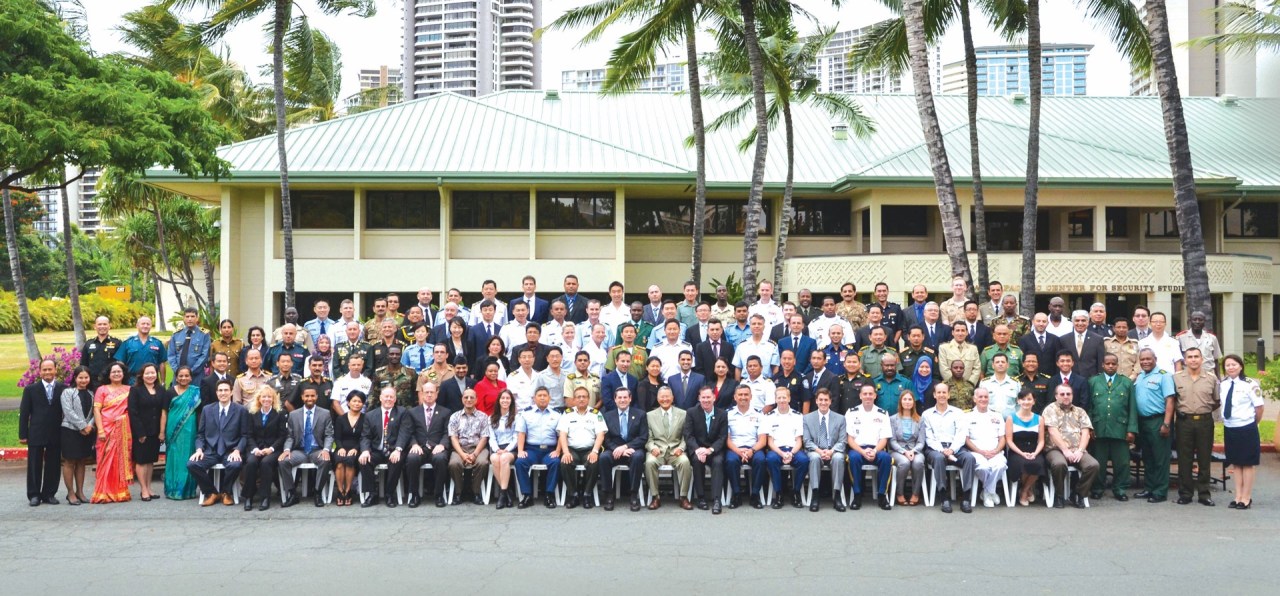
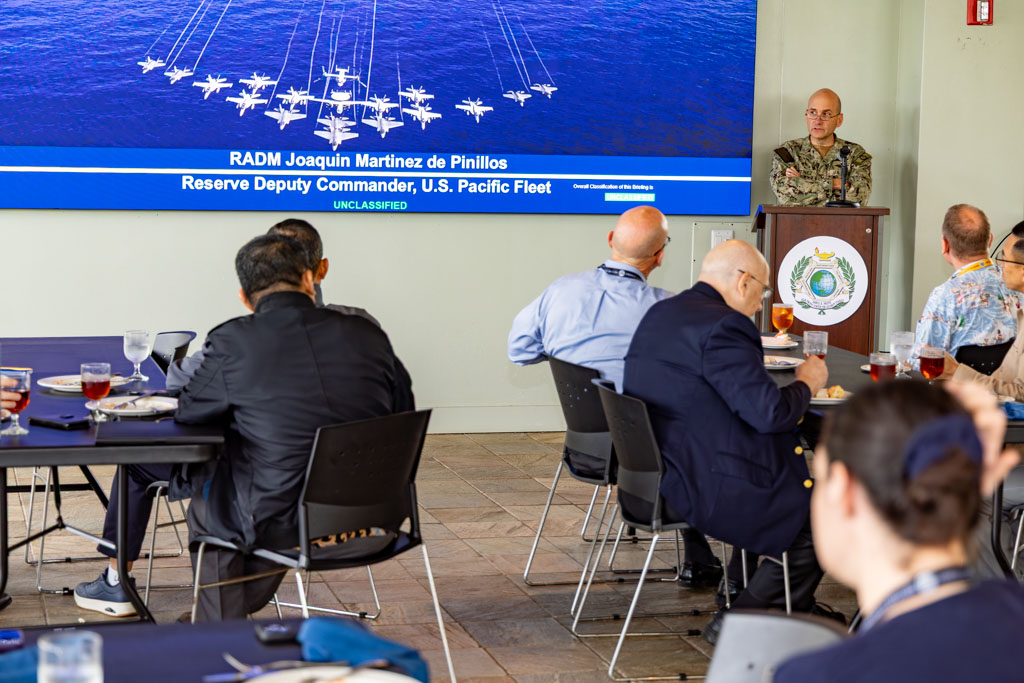
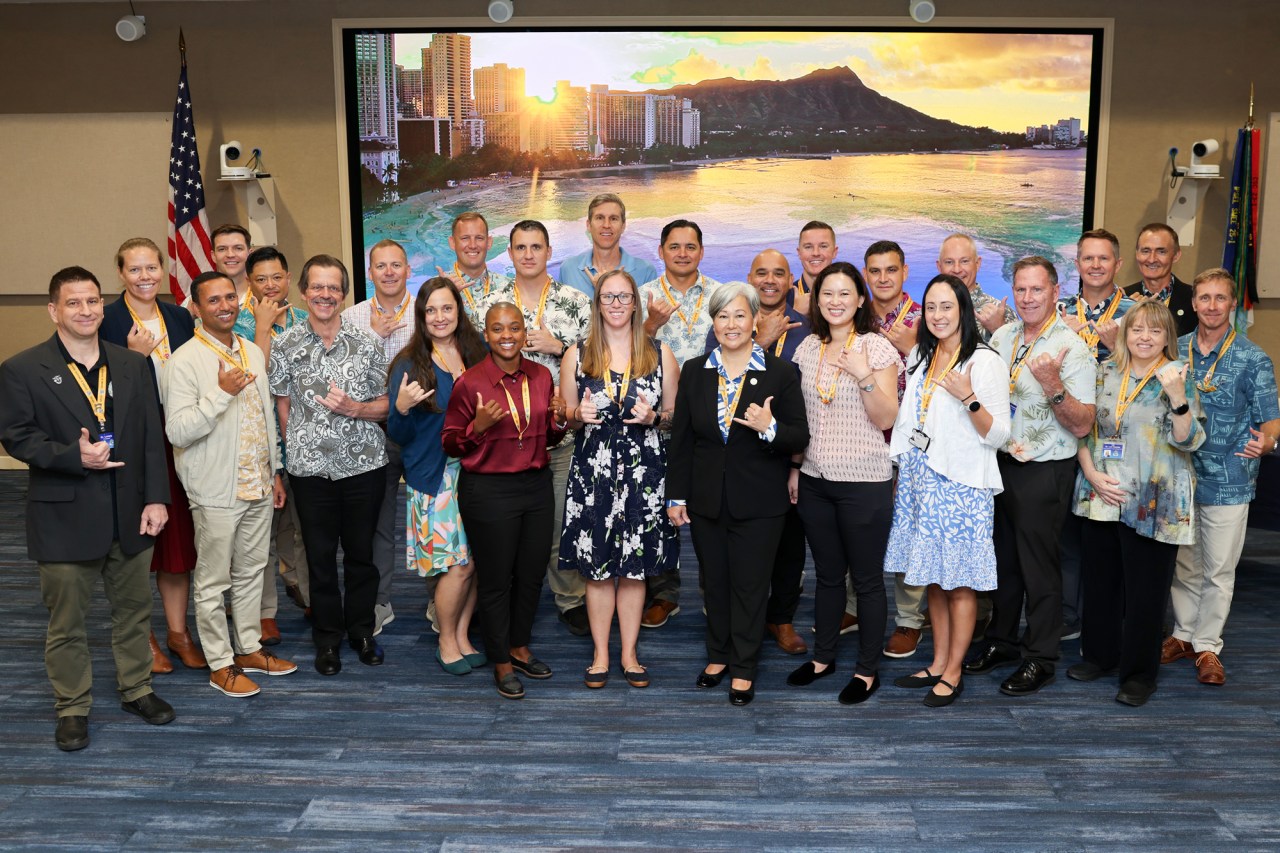
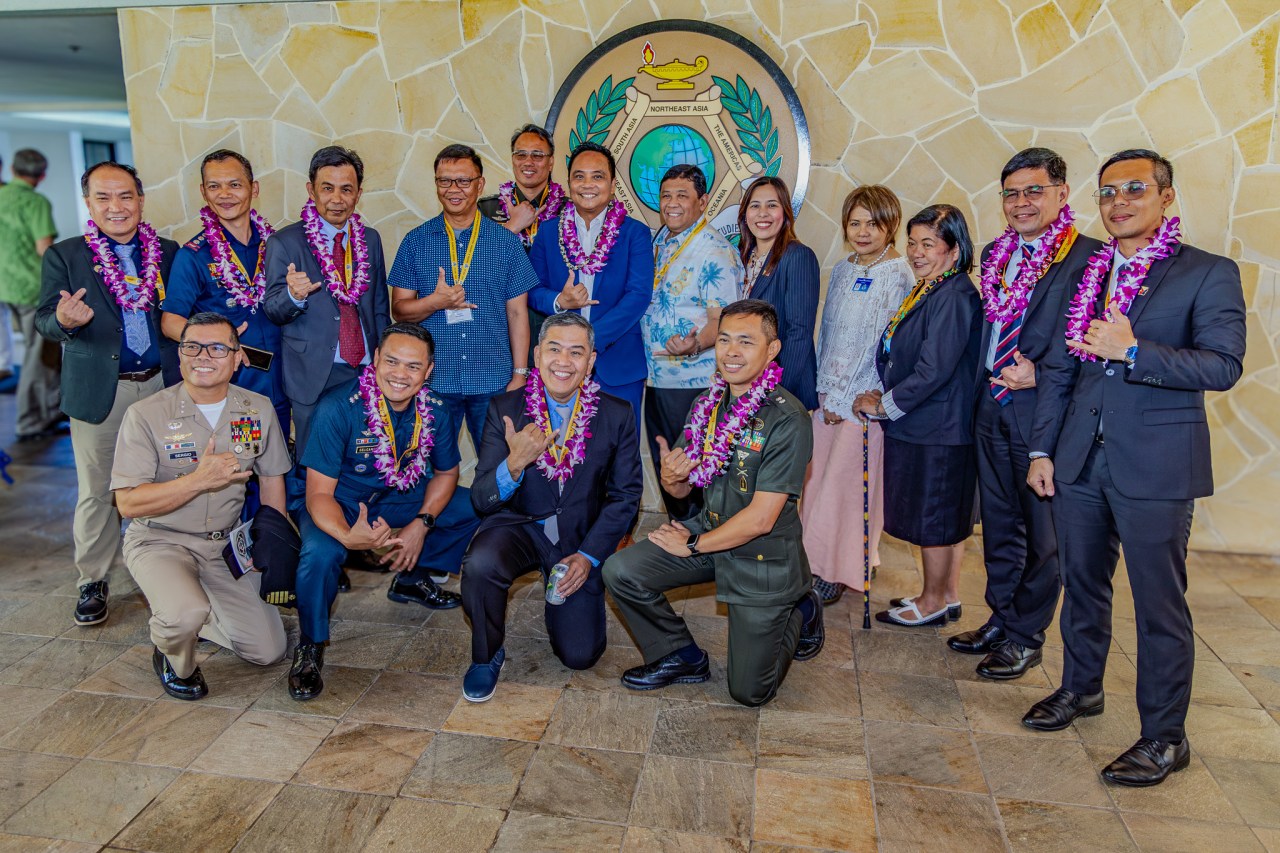




Leave A Comment